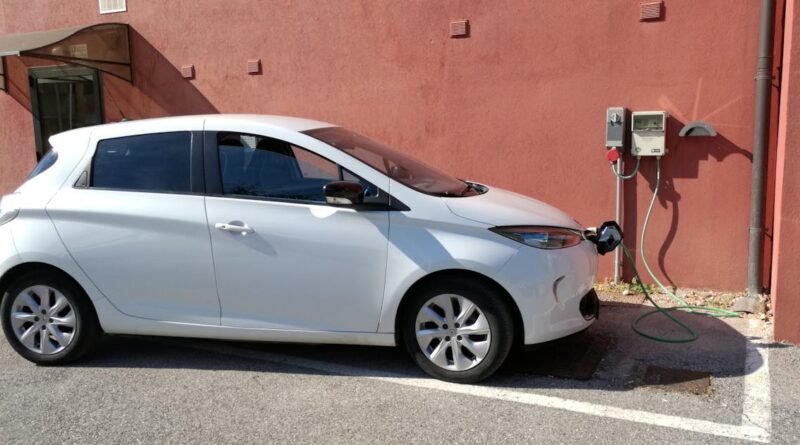What is the Effect of Weather on Electric Vehicle Charging?
Although electric cars, which offer their drivers a comfortable and efficient driving experience, typically fulfill this aim, some external circumstances might cause the vehicle’s performance to degrade. Weather is one of the most significant external influences. So, how does the weather affect electric car charging?
The number of electric vehicles in traffic is increasing day by day. The high performance, long range, fuel economy and environmentally friendly features offered by these vehicles are enough for them to be in such high demand. If you want to be among those who use electric vehicles, but are worried that changing weather conditions will have negative consequences on the use of electric vehicles, this content can give you ideas in many aspects!
You should know how the cold weather factor will affect the battery life and therefore the range of an electric vehicle, especially when winter days are just around the corner . Because in order to implement solutions related to this and make your driving experiences much better, you must first learn how the weather affects electric vehicle charging. So let’s start taking a closer look at the effects of cold and hot weather on the electric vehicle charging level!
1. Is Electric Vehicle Charging Affected by Rainy Weather?
Driving on rainy days is an extremely comfortable option in some cases. So, will your electric car provide you with efficient use when you go to work or need to be outside in rainy weather conditions? Let’s say in advance that rainy weather may negatively affect your electric vehicle driving process, but it generally does not prevent the charging process.
Heavy rainy days can damage the electrical system of electric vehicles with a low probability. However, rainy weather does not have any negative impact on the charging process of electric vehicles. Because electric vehicle parts are mostly waterproof. Water-resistant parts ensure that charging continues safely even on rainy days. So, if you are asking whether an electric car can be charged in rainy weather, we can say that it is possible to charge your car on rainy days.
2. Is Electric Vehicle Charging Affected by Hot Weather?
Hot weather conditions can affect the charging processes of electric vehicles in various ways. Among these effects, electric vehicle range loss stands out. Hot weather can cause the range of an electric vehicle to decrease. The battery discharges much faster in hot weather conditions and therefore the range of the vehicle decreases to some extent. This causes the vehicle to be charged more frequently.
Hot weather also causes the battery temperature to rise in electric vehicles. On days when the temperature is high, the temperature of the vehicle’s battery may increase. High battery temperatures can negatively affect charging performance and lifespan. Hot weather can also extend charging times at fast charging stations. The reason for this is to prevent the battery from overheating. In summary, yes, hot weather can cause negative effects on charging usage time and electric vehicle charging costs .
3. Is Electric Vehicle Charging Affected by Humidity?
As you know, electric vehicle charging is affected by various factors. Humidity is one of these factors. Humidity can affect the charging performance of electric vehicles, but its effect is generally less pronounced than other factors. Batteries of electric vehicles are resistant to moisture and protected from moisture. However, batteries that come into contact with high humidity for a long time can gradually corrode.
There is no certainty that humidity in the air directly affects the charging performance of electric vehicles. However, very low or extremely high humidity levels can cause some damage to electric vehicle electricity consumption and charging systems. Therefore, it is possible to say that electric vehicles and chargers operate smoothly under normal humidity conditions.
4. Is Electric Vehicle Charging Affected by Snowy Weather?
Cold and snowy weather are among the factors that negatively affect the performance of electric vehicles’ batteries. On days when there is snowfall, the falling air temperature also decreases the battery temperature. As a result, battery capacity decreases and electric vehicle charging time increases. This situation makes the need for charging electric vehicles more frequent in cold weather conditions. In addition, the fact that fast charging stations operate slower in cold weather conditions is among the factors that extend the charging time of electric vehicles.
Snow and ice conditions can also affect the handling and energy efficiency of electric vehicles. Driving an electric vehicle on snowy and icy roads can increase energy consumption and therefore shorten battery life. In addition, the use of heating systems to maintain indoor temperature also causes battery energy to be depleted faster.
5. Do Weather Changes Affect Electric Vehicle Charging Life?
Weather conditions can vary throughout the year, even at any time of the day. These changes indirectly affect the charging life of electric vehicles. Batteries of electric vehicles can be sensitive to temperature changes. Cold weather not only reduces the performance of the battery, but also shortens its charging life. Extremely hot weather may cause a decrease in the charging life of the battery due to heating.
The effects of cold weather on electric vehicle charging may raise the question of whether electric vehicles work in cold weather. It is possible to protect the charge and battery life of electric vehicles when adequate precautions are taken on snowy and harsh cold days. As a result, the advantages of electric vehicles can be enjoyed even in the cold.
6. What should be done to prevent electric vehicle charging from being affected by the weather?
Weather changes can create some difficulties for electric vehicle owners, as we detailed above. However, it is possible to minimize these effects with correct planning and conscious use. Although electric vehicles are being developed to cope with weather changes, it is necessary to take some precautions to extend the charging and battery life of these vehicles.
The methods you can follow to get a much more efficient driving experience by using electric vehicles in accordance with the weather conditions are listed as follows:
- Battery temperature management: You can try heating or cooling methods to make your electric vehicle suitable for changing weather conditions. It is possible to have more efficient charge usage and a longer range by warming up your battery before charging your vehicle on a cold day.
You can bring your battery to room temperature before charging by turning on your electric vehicle’s heaters. In addition, you can shorten the charging time by charging the already warm battery immediately after the trip. On hot days, you can run the vehicle air conditioner at the cold setting to cool the battery. You can also support your vehicle’s charging use by performing electric vehicle summer maintenance .
- Parking location selection: In high temperatures, you can reduce the battery temperature by parking your vehicle in the shade or in a closed area. In this way, you prevent the battery from overheating and ensure efficient charging usage. Parking the vehicle in closed garages during winter months may be an ideal solution to maintain battery temperature.
- Cleaning: It is important to keep the ports clean and dry when charging your electric vehicle in rainy weather conditions. Dirty or wet connections can reduce charging efficiency. In addition, you should know that the electric vehicle inspection requirement can positively contribute to the life of vehicle parts and therefore charging efficiency.
- Tire pressure control: The falling ambient temperature during winter days also reduces tire pressure. This leads to a shorter kilometer range. Having your tire pressure checked by performing electric vehicle maintenance is a practice that will provide an advantage in range and therefore charging usage.

